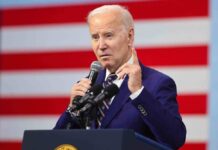
National Public Radio has been Uri Berliner’s home for 25 years. After graduating from Columbia’s School of Journalism, he attended Harvard as a Nieman Fellow to pursue his studies. Among his many accolades are the Peabody, Loeb, and Edward R. Murrow Awards. His most recent daring move—publicly denouncing his company in a vicious essay that will probably surpass all his other accomplishments.
The National Public Radio senior business editor has been outspoken in criticizing the group, saying they are becoming more progressive and intolerant.
Ten years ago, he noticed a shift in the tone and coverage of public radio.
According to Berliner, who claims that the growth of advocacy occurred simultaneously with Trump’s ascension to power, the change in editorial viewpoint is all due to Trump. As in many other newsrooms, his 2016 victory elicited shock, despair, and grief among NPR journalists. Yet, efforts to depose or oust Trump from power supplanted the original strategy of giving harsh media critical coverage of an untrustworthy and aggressive president.
Berliner bolsters his case by analyzing how NPR covered the tales of Hunter Biden’s laptop and the Trump campaign’s purported contact with Russian intelligence agents. It was markedly biased toward the left wing.
The editor claims that NPR CEO John Lansing’s reaction after George Floyd’s sad death was also a marked turning point.
Lansing urged NPR writers to be agents of good change in an organization-wide essay that stressed the need to acknowledge and confront confrontational racism. The idea that NPR was a part of the problem was conveyed to them. He conceded that he and other prominent figures in the media should take stock of the benefits they’ve had as a result of white privilege.
Berliner said there seems to be an unspoken consensus on which stories to highlight and in what ways. There’s a never-ending flow of articles on anything from purported racism and transphobia to worries about climate change, unfavorable moves by Israel, and the risks posed by Republican policy.
Mindset significantly impacts language choices. This kind of thinking gives rise to strange stories, such as those claiming racial tensions in relation to The Beatles, the names of birds, and other contentious subjects. It implies that white conservatives have impacted Asian Americans who disagree with affirmative action and try to justify looting by claiming that worries about crime are racial.
In a media environment that often emphasizes extremes and sows discord, Berliner’s perspective is refreshingly candid and, more importantly, accurate.













